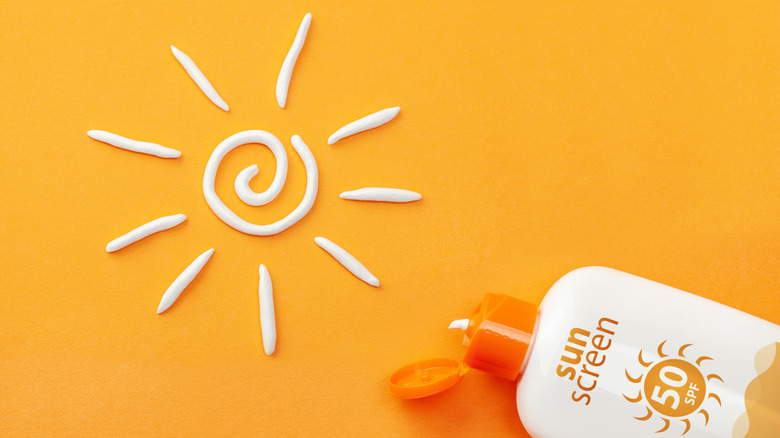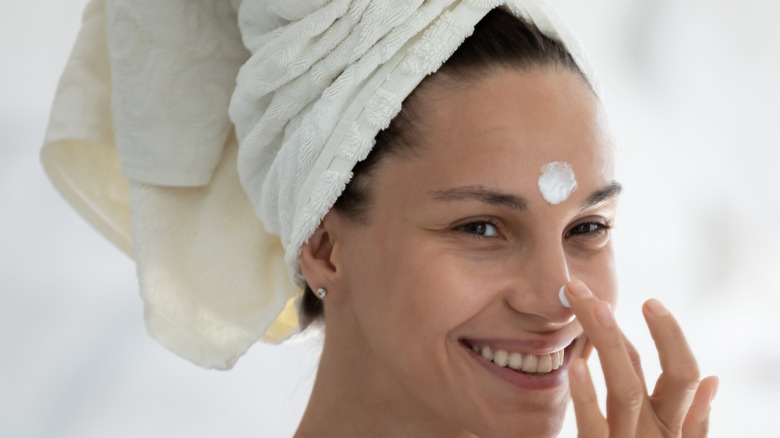Should You Really Wear Sunscreen Indoors?
Have you ever considered wearing sunscreen indoors? This product does more than just protect against ultraviolet (UV) radiation, according to Mount Nittany Health. Over time, it may also slow down photoaging and prevent skin cancer, among other benefits. Dermatologists recommend choosing a sunscreen labeled "broad spectrum" to make sure it blocks both ultraviolet A and ultraviolet B rays. For best results, apply it to your skin year-round — not just in the summer.
About 90% of non-melanoma skin cancers are due to exposure to ultraviolet radiation, according to a 2014 review published in Genes and Diseases. Moreover, UV radiation is responsible for 65% of all cases of melanoma, a severe form of skin cancer. Researchers believe that cumulative sun exposure may damage the DNA and affect immune function, increasing cancer risk. While no sunscreen offers complete protection, these products can block up to 98% of ultraviolet B (UVB) rays, notes the University of Rochester Medical Center. Ideally, use one with a sun protection factor (SPF) of 30 or higher.
With the shift to remote work, you may be spending more time indoors. In this case, do you still need to use sunscreen? The answer depends on your work environment, especially the amount of direct sunlight entering the room.
Wearing sunscreen indoors could slow down aging
Both ultraviolet A (UVA) and ultraviolet (B) rays can pass through clouds, but the former can also penetrate glass, warns the Skin Cancer Foundation. Plus, UVA rays penetrate the skin more deeply than UVB light, which may lead to wrinkles, skin cancer, and dark spots. "So 80% of UVA light can make its way through the clouds, and even when it's cool you're not safe because the strength of UV does not really correlate with the temperature outside," board-certified dermatologist Dr. Michelle Henry told Today. She also notes that wearing sunscreen regularly may reverse photoaging and improve the appearance of wrinkles in the long run.
Some of these products can block blue light, too. A study published in the British Journal of Dermatology found that microfine titanium dioxide, a common sunscreen ingredient, may protect against both UVA and blue light exposure. The latter decreases antioxidant levels in the skin and promotes free radical formation, leading to premature aging (per Oxidative Medicine and Cellular Longevity). The University of Texas MD Anderson Cancer Center warns that blue light exposure may also cause abnormal pigmentation, especially in people with darker skin tones.
On the positive side, you can prevent these issues by applying sunscreen every morning. Use a little bit more on your face, ears, hands, and other exposed areas. Depending on your preferences, you may opt for creams, lotions, sprays, wax sticks, or makeup products with an SPF of at least 30.


